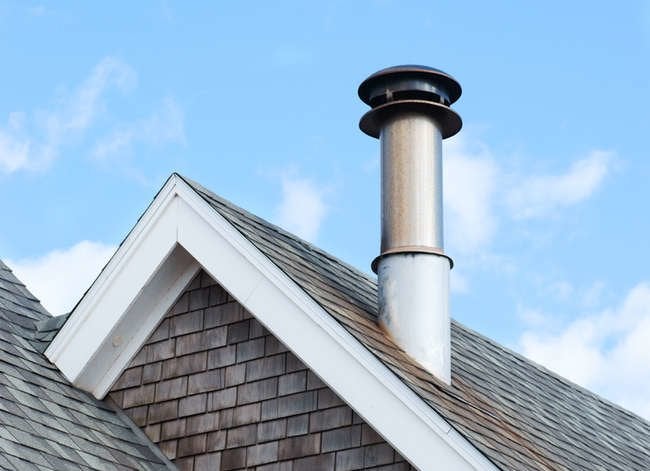We may earn revenue from the products available on this page and participate in affiliate programs. Learn More ›
An Ounce of Prevention…

It’s so much easier to enjoy a summer home when each year’s return goes smoothly. Opening the door to find unwelcome surprises, however, starts summer vacation off on a less-than-relaxing note. Leaks, floods, theft, vandalism, critters, and other messes can mean a time-consuming cleanup and potentially costly repairs. Investing a little time and money now to keep your home in good shape while it’s vacant will mean a much happier return next Memorial Day.
Bring Everything Inside
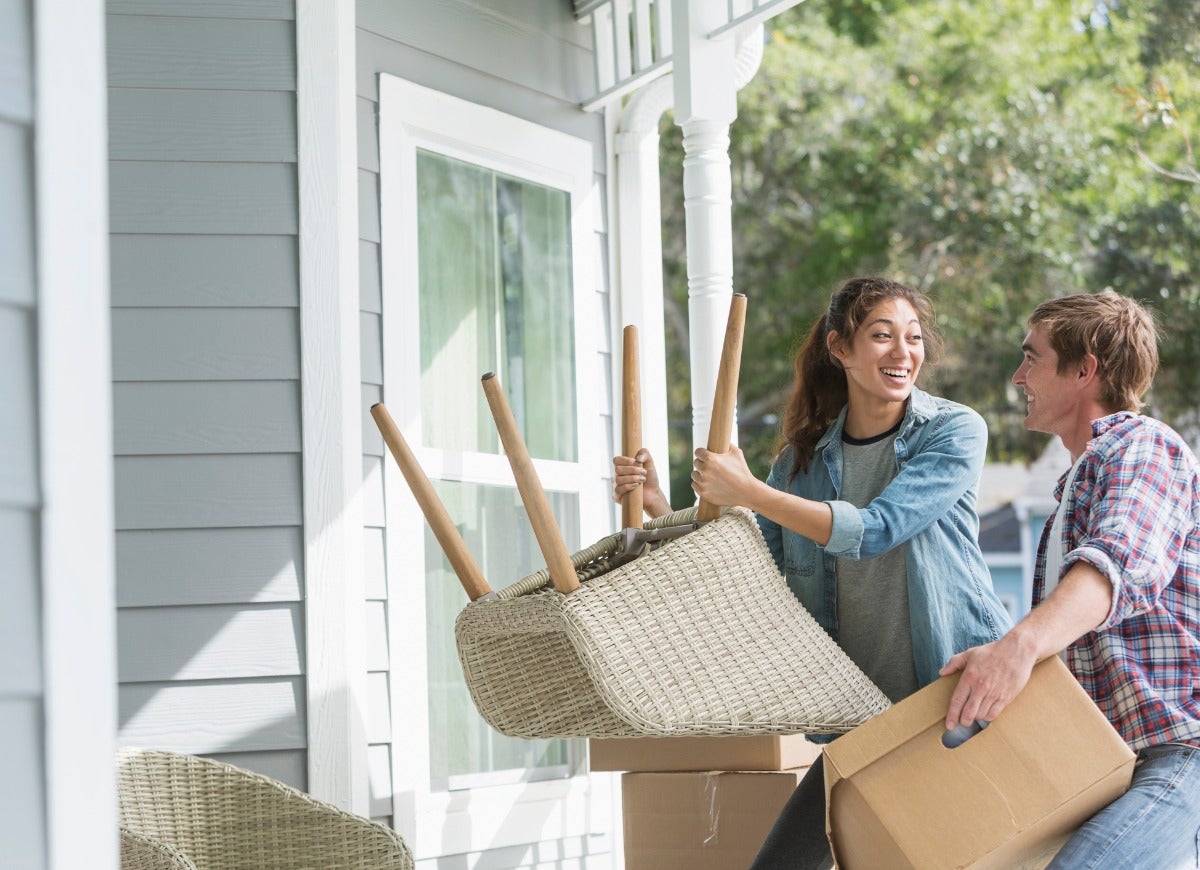
Winter elements are rough not only on a home itself but also on the tools, furniture, and toys that fill it. Before closing up shop, be sure to store hammocks, patio furniture, and cushions in a garage or shed, or cover them with outdoor furniture covers. Likewise, stow all lawn mowers, garden tools, pool toys, bikes, and outdoor games. And that big patio umbrella? Tie it up and bring it in before winter winds lift and land it in the nearby lake.
Clean the Gutters
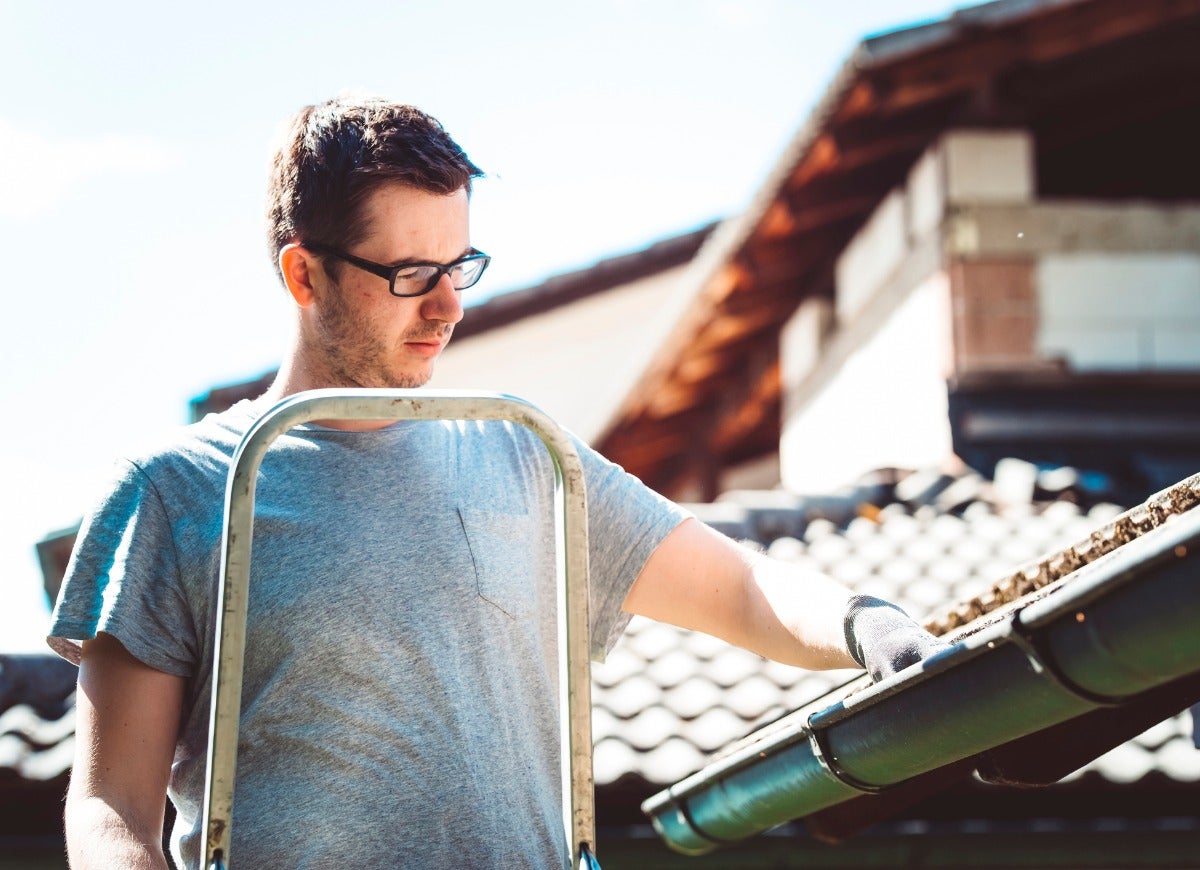
One of the most important but overlooked seasonal maintenance tasks is to clean out your home’s rain gutters. Doing so helps ensure that rain and snowmelt run freely away from the base of the house. If you can get back to your summer house for a quick fall visit, check the gutters again to get new leaf debris out. Once temperatures dip, the debris can freeze and clog the gutters. Clogged gutters can overflow, cause ice dams to form—and cause the ice-heavy gutters to separate from the roof.
RELATED:
Solved! How Often Should I Really Clean My Gutters?
Inspect the Roof
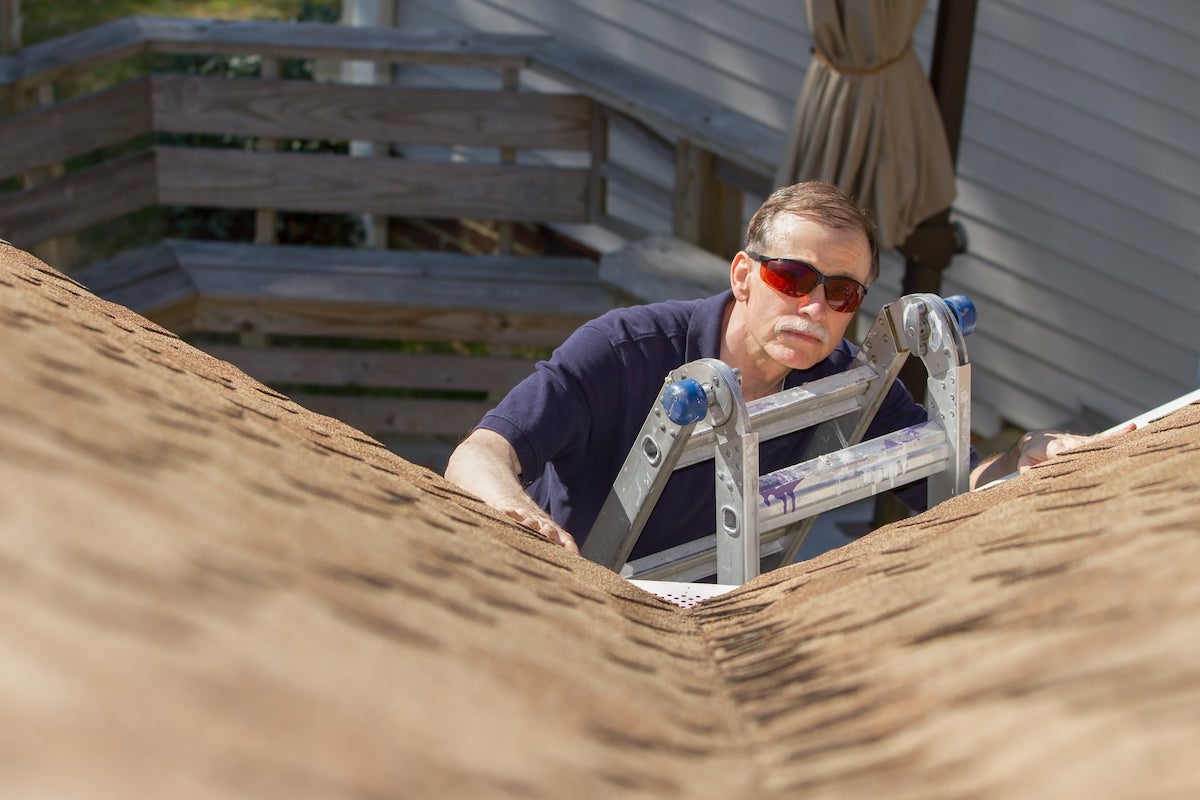
Winter winds can peel back loose shingles and damage flashing. Add some ice and the freeze-thaw process into the equation, and ice dams can form under shingles. Even a slightly damaged area of the roof can turn into a major roof leak. Check the roof before leaving at the end of summer to prevent returning next year to mold or a structural issue.
Using a ladder or binoculars, check the roof for any raised shingles. If there are signs of damage or wear, make repairs accordingly. Also, be sure to inspect the eaves, where the roof overhang meets the house. Pests looking to nest will often seek refuge in sun-warmed attics.
Turn Off Some of Your Utilities
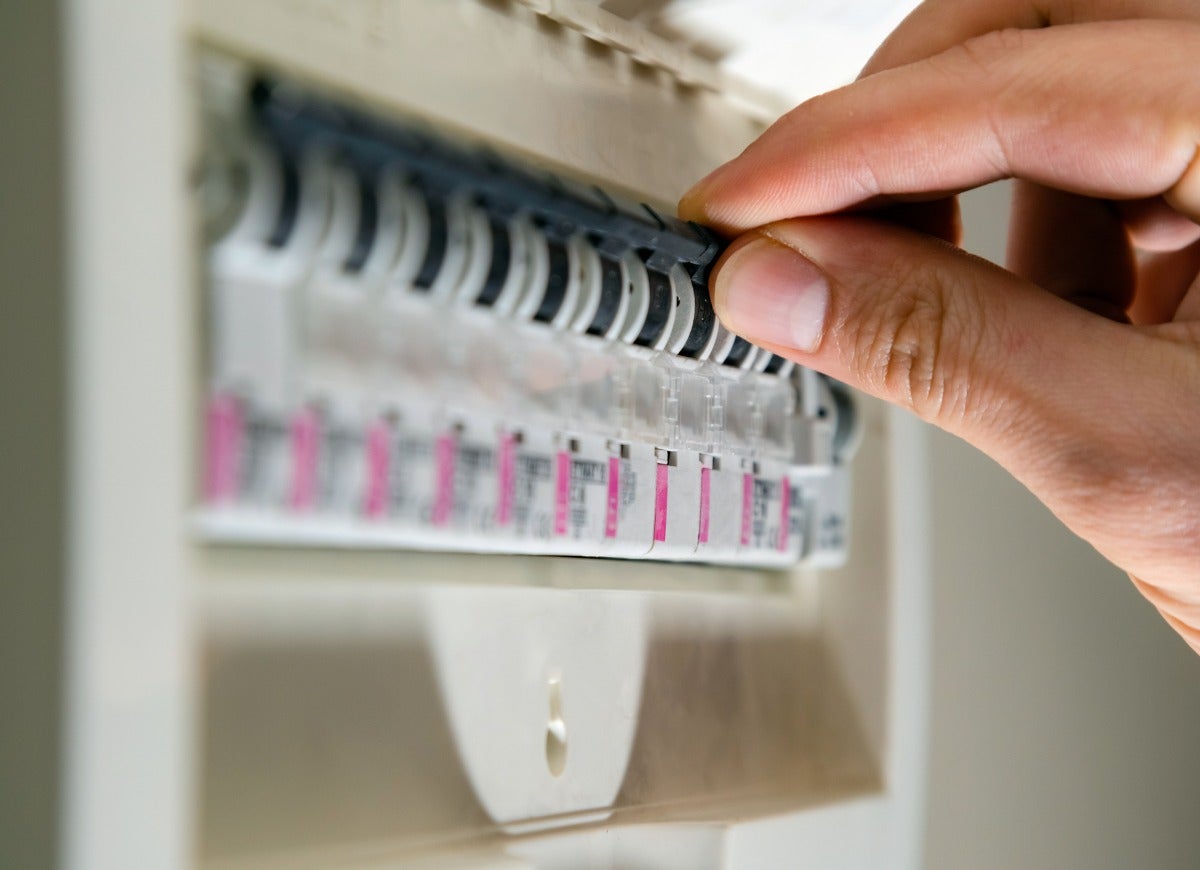
If you won’t be using a vacation home for a few months or more, unplug nonessential appliances that lightning and power surges might damage. Turn gas off at the main connection (or at the propane tank), or suspend gas service to the property until you return.
At the breaker box, turn off circuits you don’t need, but leave on those that control necessities in your absence. if you have an alarm system or hard-wired doorbell camera, for example, you’ll want to keep those circuits on. If you’re concerned about crime, you also might want to leave on a few circuits that control lights around the home.
It’s tempting to shut off the heat or air conditioning, but whether you do so has a lot to do with the climate in your area. Leaving the A/C running is usually worth the expense because it will help control humidity and prevent mildew and mold. If you decide to keep your climate controlled, however, by all means adjust the temperature to a more economical setting: In winter, aim for no lower than 55 degrees Fahrenheit to prevent pipes from freezing. In warmer seasons, set the air conditioner’s thermostat at 85 degrees or cooler. If the indoor temperature is warmer than that, it can stress appliances like refrigerators, fry circuits, and even spoil food in the pantry.
Turn Off the Water
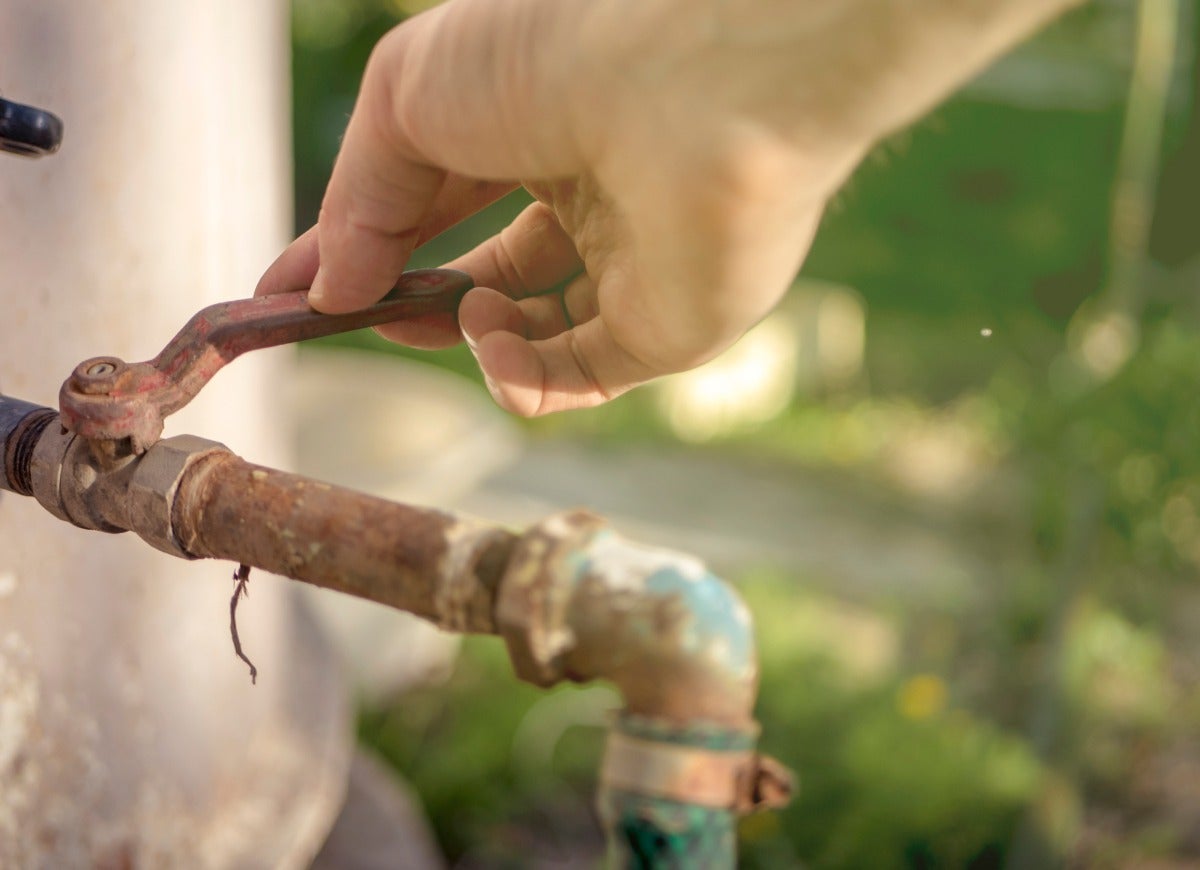
To keep pipes from freezing and bursting while you are away, it’s a good idea to drain all of the home’s water pipes. Here’s how to do it: Turn off the home’s main water valve and then, working your way systematically from the top floor to the bottom floor, open all the faucets and leave them open. (Yes, shower and bathtub faucets too!) Now there’s no water in the pipes between the source and the faucets that will freeze while you are away.
Before you vacate the premises, remember to disconnect and drain garden hoses at your outdoor spigots. Consider turning off the main water supply, too, even if the winter temps don’t dip below freezing where you live. Doing so will minimize the risk of an indoor flood if, say, your water heater bursts while you are away.
Thoroughly Clean Living and Sleeping Spaces

A basic but thorough cleaning of bedrooms and living spaces can help you start relaxing sooner upon your return. In the bedrooms, remove and store all bedding to keep it dust free. Cover mattresses to prevent burrowing critters or insects from damaging them. Cover furniture with drop cloths to minimize the amount of dust it collects while you are away. Clean out all closets and cabinets, and either air them out by leaving the doors open or throw a sachet or other deodorizing agent inside.
Roll up bathroom and area rugs and either take them along for cleaning, or launder and then store them in a cabinet during the off-season.
Clean the Kitchen

Of all the spaces in your home, the kitchen is the one that needs to be cleaned most thoroughly before you vacate the property. Leaving traces of food behind for long periods of time can encourage bacteria and mildew to grow—you’ll have a nasty surprise in store next year! Play it safe by tossing all opened and perishable items from cabinets, refrigerators, and freezers. Store non-perishable food in airtight containers, and relocate canned goods to the basement or take them back to your primary residence.
If you plan to unplug the refrigerator, first clean it with a deodorizing solution of baking soda and water, and prop the fridge doors open so the inside dries. Homeowners who opt to leave their fridges on should consider placing a plastic bag filled with ice cubes in the freezer. When you return next year, check to see if the ice is still cubed, or if it has melted and refrozen into a frozen blob. The latter is a clear sign that you had a power outage at some point in the intervening months. If that’s the case, you’ll want to dispose of any food that was left inside.
RELATED:
25 Things to Get Rid of Before 2025
Make it Look Like Someone Is Home

Whether or not crime is an issue in your area, it’s a good idea to make your summer getaway look occupied year round. The extent to which you carry this charade is up to you. It may depend on how safe the neighborhood is in the off season, and the value of the home and its contents. As is the case when you go on vacation and leave your primary residence vacant, taking a few simple steps can give potential ne’er-do-wells enough pause to move past your place. The first step, of course, is to stop local newspaper delivery and have your mail forwarded or held at the post office.
If you have a second car at the summer home, park it in the driveway. When snow piles up in winter or the grass grows out of control in fall, making a home look occupied is a harder sell. It’s worthwhile to hire a local business (or an enterprising teenager) to cut your grass and shovel your driveway.
Inside the home, keep drapes and blinds closed to prevent furniture and decor from fading, and set some lights on automatic timers to illuminate a room or two after the sun goes down. (Consider the Amazon smart plug, which was the top pick in our researched guide to the best smart plugs for the connected home.) Program a few outdoor lights to remain on from dark, too.
Prepare for the Next Season’s Elements
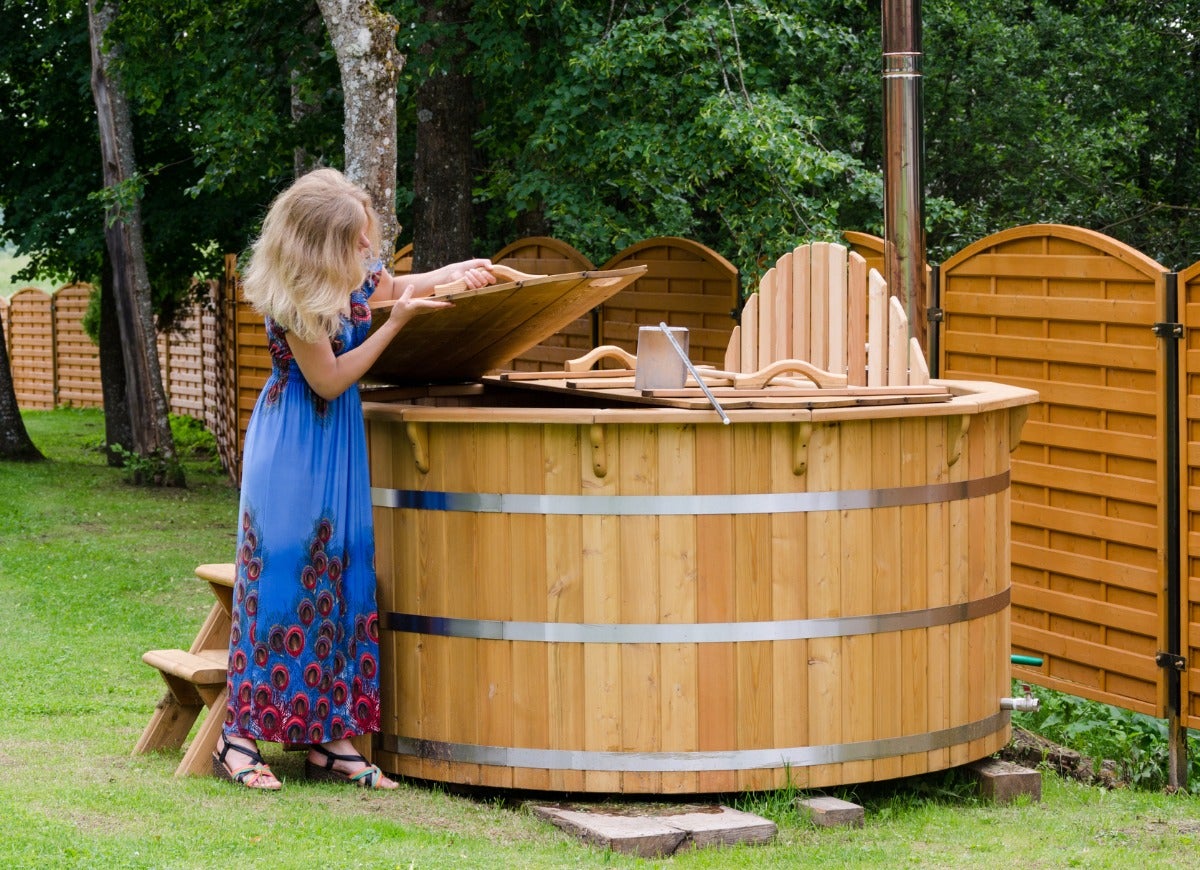
With extreme weather events and natural disasters on the rise, it is a good idea to prepare a part-time residence for meteorological emergencies that may occur while you’re miles away.
If your home has a basement, install a sump pump or do routine maintenance on the one you have to prevent flooding. Do a quick check to make sure there’s nothing in the basement floor—stowed clothes and books, canned food, tools, and the like—that could be damaged if the area takes on some water.
Walk around the home’s exterior and note trees that need removing, trimming, or are in danger of toppling on the house. In fire-prone areas, be sure to take steps to minimize fire spread. Prune trees so that their lowest branches are at least 6 to 10 feet off the ground, and ensure they are not touching other shrubs, trees, or the house.
If your getaway home is in a zone that’s prone to snow storms or hurricanes, consider purchasing protective windows or window coverings to help you weather those emergencies. Storm windows cut down on dust and add insulation to the home, especially during cold months. Hurricane shutters can keep windows from shattering in high winds.
Finally, make sure your favorite summer outdoor “room”—the pool or hot tub—is in good shape to weather the winter. The first order of business is to make sure they’re cleaned thoroughly, and either drained or covered. Winterizing a pool can protect equipment from damage caused by freezing.
RELATED:
How To: Clean a Hot Tub
Set Up Your Smart Tech

Installing a few gadgets in your vacation home can help you prevent (or quickly detect) trespassing on your property. Simple solutions like motion-sensor lights and smart plugs can deter thieves. Using the apps associated with these devices, you can set lights to come on on a schedule, or turn them on remotely. You may want to install a smart lock on your entry door, too, so that you can let service techs and house sitters inside while you are away without giving out keys to everyone in the neighborhood.
Video cameras provide great peace of mind for those who live hours away from their vacation cabin or cottage. Systems such as the Ring Alarm, a top pick in our researched guide to the best smart home systems, will send an alert to your phone if anyone suspicious approaches the property.
The only real downside to these smart-tech systems is that they have to be connected to a router in order to send the information to a cloud or network. In remote areas, Wi-Fi is patchy at best, and a considerable monthly expense for a home that is vacant most of the year. If crime is a big concern for you, another option is to sign on with a home security alarm company that will notify local law enforcement in the event of property breach.

A DIYer’s Guide to Replacing Flooring
Update the look and feel of any room by replacing old, worn-out flooring. These products and straightforward steps make it easy enough for any handy homeowner to do.

